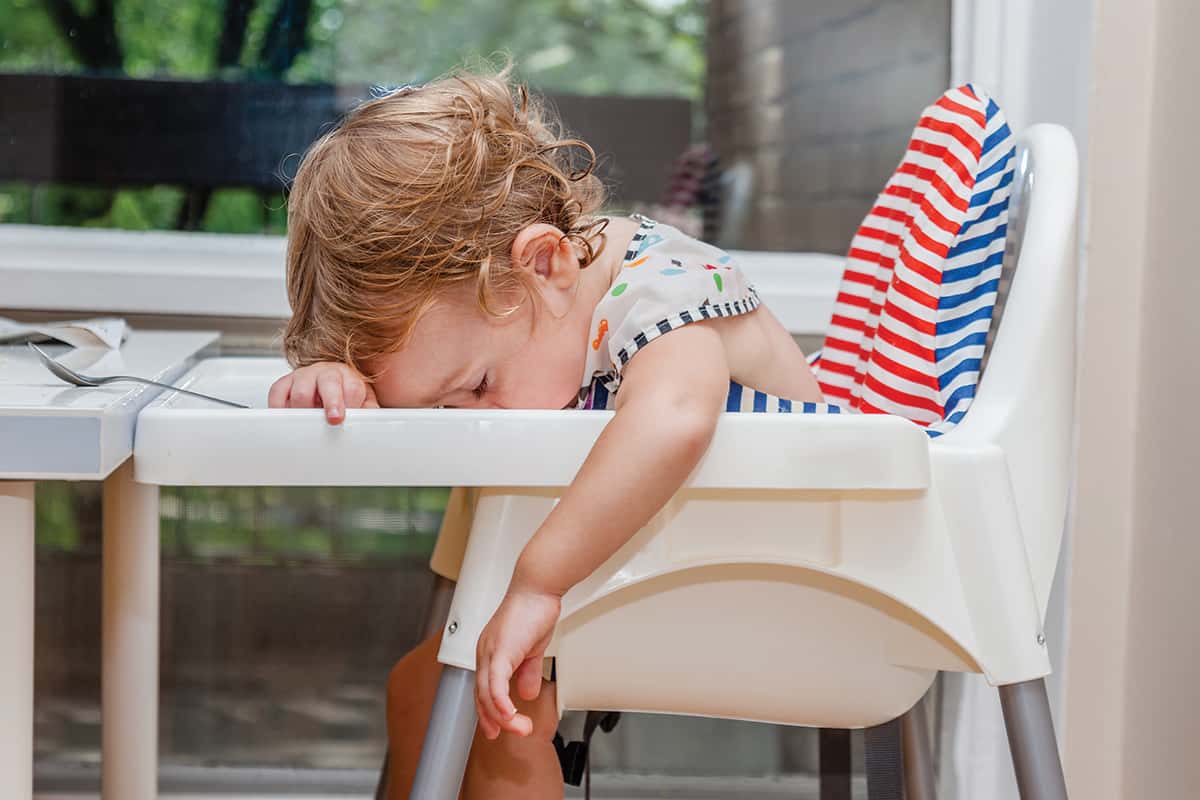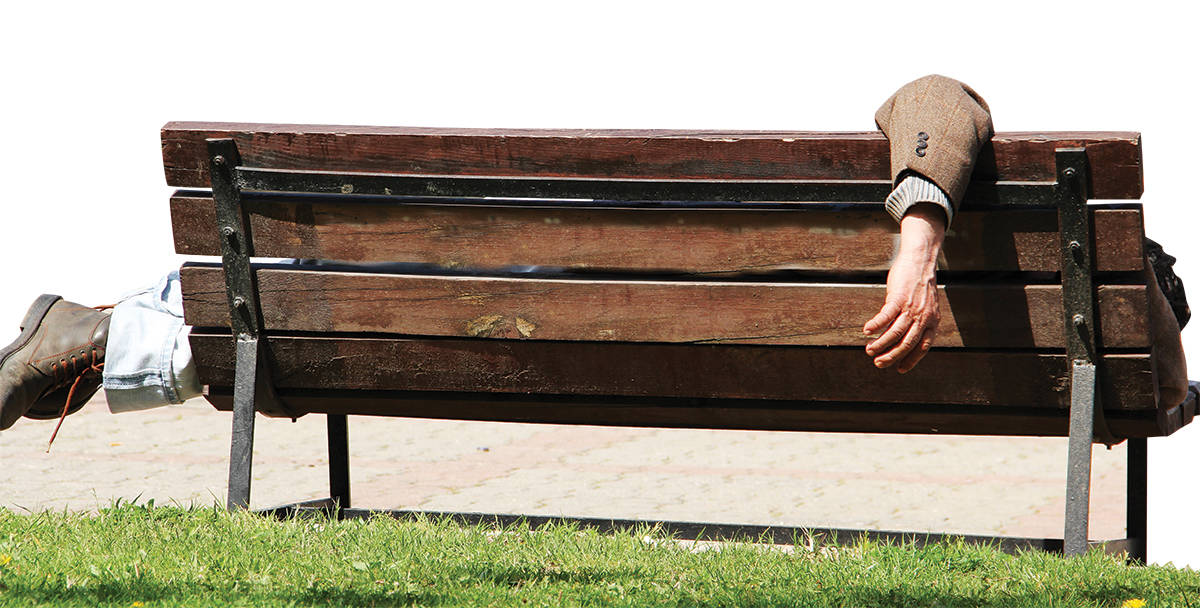Read The
Current Issue
Sleep On It
Sleep your way to better physical and mental health and performance.
By Dina Mishev
FOR MANY YEARS my attitude toward sleep was, “You can sleep when you’re dead.”
Unfortunately for my mom, I hadn’t yet adopted this thinking when I was in junior high school and high school and had a daily paper route that promised delivery of papers by 6:30 a.m. My mom, being the wonderful mom she is, got up thirty minutes earlier than she already had to for her job at the National Security Agency, so I could sleep thirty minutes more. She’d do all the assembling of the papers and get them loaded onto my official paper cart. I’d then come bobbing down the driveway, bleary-eyed and zombie-like, and get to work delivering the day’s news to the neighborhood, all the time wishing I was still in bed.
The New York Times reported that four out of five people say they suffer from sleep problems at least once a week and wake up feeling exhausted. Also reported: people who sleep seven hours a night are healthier and live longer than those who sleep less than seven hours a night.
It was shortly after moving to Jackson in my early twenties that I adopted the I’ll-sleep-when-I’m-dead mentality. And I kept true to it for almost two decades—working more than sixty hours a week to get my writing career off the ground, training for and doing 24-hour endurance races and ultramarathons, volunteering as an EMT and on Teton County Search & Rescue, and generally saying “yes” to anything that sounded remotely interesting. I, like so many other Jacksonites, made the time for all of this by sleeping less. During this time, I was diagnosed with multiple sclerosis, depression, and stage III breast cancer. Also, I got about a half dozen colds every winter.
I don’t blame insufficient sleep for cancer and MS, but I do blame it (partially) for how easily and often I got colds. More and more research reveals how important sleep is to physical and mental health. A Harvard Medical School article published online reports there is some evidence that insufficient sleep makes you more prone to the common cold if you’re exposed to the cold virus; that, over time, continued sleep deprivation raises the risk for a number of chronic health problems, including obesity, substance abuse, hypertension, diabetes, stroke, heart disease, and, yes, cancer; and that insufficient sleep can leave you more vulnerable to mental health issues such as depression and anxiety.
A report by the National Institutes of Mental Health found depression rates were forty times higher for patients with insomnia than those without sleep problems. Mental health experts increasingly view depression or anxiety as an effect, rather than a cause, of insomnia.
“A surefire way to increase happiness is to get better sleep,” says Jackson-based Sharene Garaman, Psy.D. “Nothing else works as well to increase someone’s well-being—no application, no treatment, no medicine—than sleep. If someone isn’t getting good sleep, everything looks worse than it would with sleep.”
Yet, according to the Centers for Disease Control and Prevention, more than a third of adults in the U.S. get insufficient sleep, which the agency defines as less than seven hours nightly. While “insufficient sleep” is easily defined and agreed upon, sufficient sleep is different for everyone, but experts say it’s between seven and nine hours a night. How much sleep are you getting?
“It’s shown that those who nap for a short period of time during the day have better productivity throughout the day versus those who don’t nap,” Amy Bender, a sleep scientist at the Centre for Sleep & Human Performance in Calgary, Alberta, told Van Winkle’s, a website dedicated to exploring the importance of sleep in our lives. “There are psychological events occurring in the brain during sleep that can help with motor memory, and even just a twenty-minute nap has been found to reduce sleepiness, improve concentration, and enhance motor performance.”
Developing Good Sleep Hygiene, a.k.a. Good Sleep Habits
* Go to bed at about the same time every night, and keep your morning wake-up time consistent (don’t sleep in more than a half hour on weekends—sorry!).
* Don’t nap after three p.m.
* Dedicate your bedroom to sleep (and romance). Your bedroom should be peaceful and relaxing, so no working, watching television, or eating in it.
* Keep your bedroom cool: Over a 24-hour period, our body temperatures naturally peak and decline. Our internal temperatures are usually at their highest in early afternoon and lowest around five a.m. Helping your body get to a lower temperature faster can encourage deeper sleep. Roger Olin, manager of St. John’s Medical Center’s Sleep Disorder Center since 2008, says that for optimal sleep your bedroom should be about 65 degrees. (Studies show your bedroom temperature doesn’t have to be that precise: between 60 and 67 is the magic range; above 75 degrees and below 54 degrees can actually disrupt sleep.)
Sleep Your Way to Being a Better Athlete
It’s been reported that twenty-time tennis Grand Slam winner Roger Federer likes to sleep between eleven and twelve hours a night. Michael Phelps, who’s won 28 Olympic medals (23 of them gold), has been quoted as saying all he’s got time for is swimming, eating, and sleeping. Usain Bolt, widely considered the greatest sprinter of all time, has said, “Sleep is extremely important to me—I need to rest and recover in order for the training I do to be absorbed by my body.”
Utah-based ski mountaineer Noah Howell told Van Winkle’s, a website dedicated “to exploring the relationship between sleep and the rest of our lives” and published by the mattress and bedding company Casper Sleep: “Sleep is the single most important thing I do. When I’m training, sleep is the one thing I won’t skimp on—I need my eight hours, plus a nap if I can. That helps me keep illness at bay and lets my body recover.” Little wonder the U.S. Ski Team opened a sleep center inside their Center of Excellence in Park City, Utah, and encourages athletes to nap between training sessions.
The RAND Corporation has estimated that collectively, costs attributable to sleep deficiency in the U.S. exceeded $410 billion in 2015, more than 2 percent of the gross domestic product.
Studies show that getting less than six hours of sleep a night and then driving is comparable to having a blood alcohol level of about .08 percent, the legal limit in most states.






